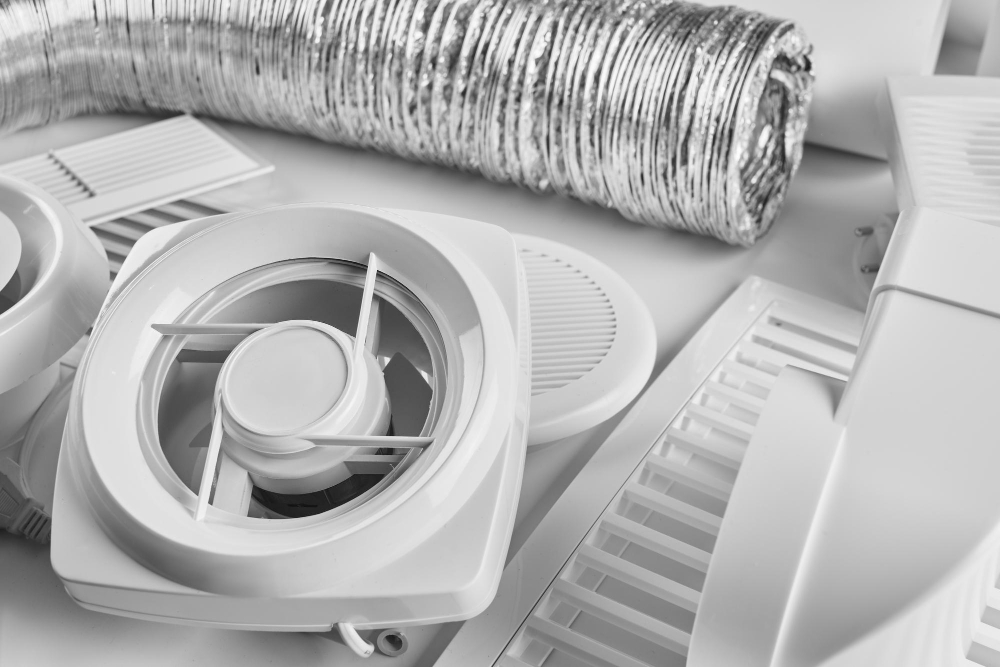Clear Signs It's Time to Replace Your HVAC Parts

Your HVAC system works around the clock to keep your Florida home comfortable, but like any hardworking machinery, its components don't last forever. Recognizing when it's time to replace HVAC parts can save you money, prevent unexpected breakdowns, and ensure your family stays comfortable year-round.
Many homeowners wait until their system completely fails before taking action. This reactive approach often leads to emergency repair costs, uncomfortable living conditions, and potentially more extensive damage to the entire system. By understanding the warning signs early, you can make informed decisions about part replacements and avoid costly surprises.
Florida's unique climate presents particular challenges for HVAC systems. The combination of high humidity, frequent temperature fluctuations, and near-constant system operation means components wear out faster than they might in other regions. Regular maintenance and timely part replacement become even more critical in the Sunshine State.
Unusual Noises Coming From Your System
Strange sounds from your HVAC system are often the first indication that components need attention. A well-functioning system should operate relatively quietly, with only the gentle hum of air movement and occasional cycling sounds.
Grinding noises typically indicate worn bearings in the blower motor or issues with the fan assembly. These components endure constant rotation and can wear down over time, especially in Florida's demanding climate where systems run frequently.
Squealing or screeching sounds often point to belt problems or motor issues. Drive belts can crack, fray, or stretch beyond their effective range. When these components fail, they can cause additional damage to connected parts if not addressed promptly.
Banging or clanking noises suggest loose or damaged internal components. This could indicate anything from a loose fan blade to a failing compressor. These sounds warrant immediate attention from a qualified technician.
Declining Energy Efficiency and Rising Bills
When HVAC parts begin to fail, your system works harder to maintain comfortable temperatures. This increased workload translates directly into higher energy consumption and utility bills.
Dirty or clogged air filters force the system to work overtime, but if you've recently changed filters and bills continue climbing, the issue likely lies deeper. Worn compressors, failing motors, or damaged heat exchangers can all contribute to decreased efficiency.
Compare your current energy bills to the same months from previous years. A significant increase without corresponding changes in usage patterns or utility rates often indicates component problems that need addressing.
Poor Air Quality and Inconsistent Temperatures
HVAC systems do more than regulate temperature—they also filter and circulate air throughout your home. When key components fail, you'll notice changes in both air quality and temperature consistency.
Damaged or worn ductwork can allow contaminants to enter your system, reducing indoor air quality. Similarly, failing filters or damaged filter housings can't effectively remove dust, pollen, and other airborne particles that are particularly problematic in Florida's humid environment.
Temperature inconsistencies between rooms often indicate problems with dampers, ductwork, or the blower system. If some areas of your home feel significantly warmer or cooler than others, specific components may need replacement.
Frequent System Cycling and Poor Airflow
An HVAC system that turns on and off too frequently may have failing components that prevent it from reaching and maintaining the desired temperature. This short cycling puts additional stress on all system components and increases wear and tear.
Reduced airflow from vents can indicate several component issues. Blower motors losing power, damaged fan blades, or obstructed ductwork all contribute to poor air circulation. These problems become more noticeable during peak usage periods when your system should be performing at its best.
Excessive Humidity Levels
Florida homeowners rely heavily on their HVAC systems to control indoor humidity. When humidity levels remain high despite normal system operation, it often indicates failing components that affect the system's dehumidification capabilities.
Evaporator coils covered in dirt or damaged by corrosion can't effectively remove moisture from the air. Similarly, refrigerant leaks can reduce the system's ability to cool and dehumidify air properly.
Ductwork problems can also contribute to humidity issues. Leaks in the duct system allow humid outdoor air to enter, overwhelming your system's ability to maintain comfortable indoor conditions.
System Age and Maintenance History
Most HVAC components have predictable lifespans, though Florida's climate can accelerate wear. Air filters need replacement every 1-3 months, while major components like compressors and heat exchangers typically last 10-15 years with proper maintenance.
If your system hasn't received regular professional maintenance, components may need replacement sooner than expected. Neglected systems accumulate dirt, develop minor issues that worsen over time, and experience premature component failure.
Keep records of previous repairs and replacements. If you're frequently repairing the same components or if repair costs are approaching the price of replacement parts, it's time to consider upgrades.
Professional Assessment and Replacement
While some signs of component failure are obvious to homeowners, others require professional evaluation. Qualified HVAC technicians have the tools and experience to identify failing components before they cause system-wide problems.
Regular professional inspections can catch issues early, allowing you to plan and budget for necessary replacements. This proactive approach helps you avoid emergency situations and potentially qualify for better pricing on parts and labor.
When replacing HVAC components, consider upgrading to more efficient models. Modern parts often offer improved performance, better energy efficiency, and longer lifespans than older components, providing better value over time.
Keep Your System Running Efficiently
Recognizing these warning signs helps you maintain a comfortable, efficient home environment while avoiding costly emergency repairs. Regular attention to your HVAC system's performance pays dividends in comfort, energy savings, and system longevity.
Don't wait until component failure leaves you without climate control during Florida's extreme weather. By monitoring your system's performance and addressing issues promptly, you can ensure reliable operation when you need it most.
If you're looking for an HVAC supplier in Florida, contact Discount Air Supply today for more information about quality replacement parts and professional guidance for your specific system needs.